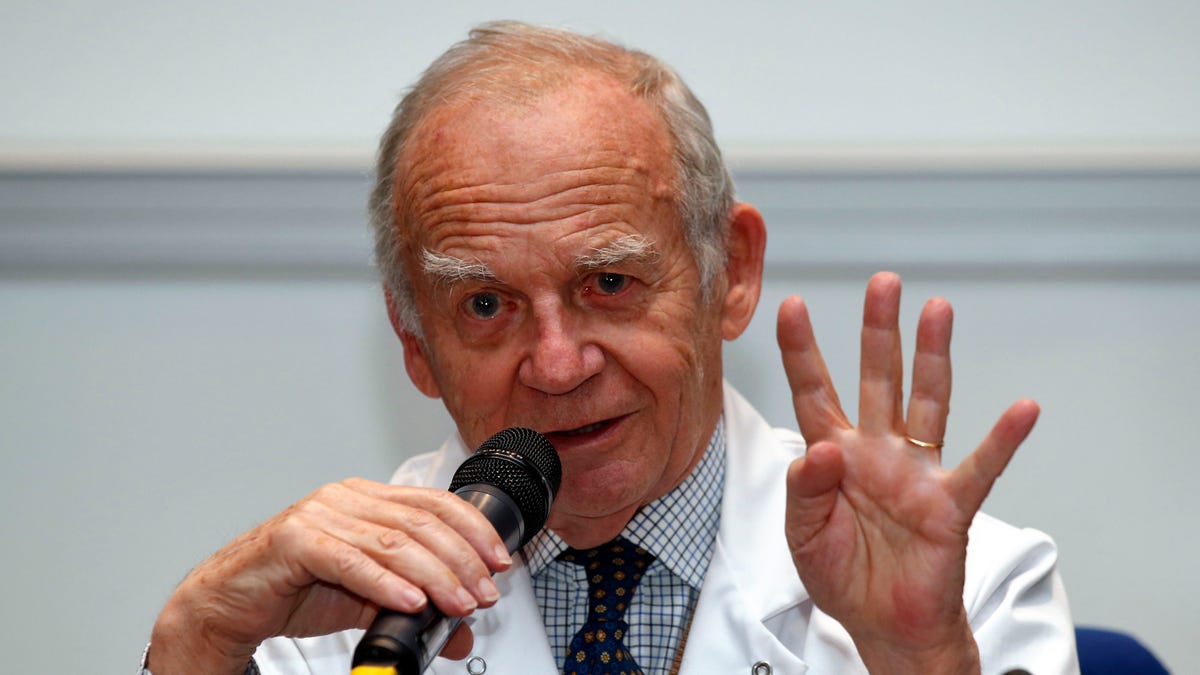
Dec. 21, 2013: Alain Carpentier, surgeon and Carmat co-founder, attends a news conference at the Georges Pompidou European Hospital in Paris. (Reuters)
PARIS – French company Carmat confirmed on Monday that it had fitted a second patient with one of its artificial hearts and would continue its clinical trials on two more patients.
Carmat's device, which mimicks nature's work using biological materials and sensors, is designed to serve not as a bridge to a heart transplant but as a permanent implant, extending life for terminally ill patients who cannot hope for a real organ, because they are too old or donors are scarce.
Shares in Carmat rose as much as 19 percent on Friday after French media reported that doctors had implanted an artificial heart made by the company for a second time. The stock was up 2.6 percent at 0737 GMT (3.37 a.m. EDT).
The clinical trial will be considered a success if Carmat's first patients survive with the implant for at least a month. The patients selected suffer from terminal heart failure - when the sick heart can no longer pump enough blood to sustain the body - and have only a few weeks, or even days, to live.
Carmat said it does not plan to publish any information on the results of this feasibility study until it is completed.
If the results of these first safety tests are positive, Carmat has said it would fit the device into about 20 patients with less severe heart failure, with an aim to request the right to market its device in Europe by 2015.
Patient enrollment had been put on hold in March after the first person to be implanted with the device, a 76-year-old man, died two and a half months after his operation.
Carmat's device, developed by a team of engineers from Airbus parent company EADS, weighs about 900g (around 2 lb)- nearly three times more than an average healthy human heart. It mimics heart muscle contractions and contains sensors that adapt the blood flow to the patient's moves.
It is powered by external, wearable lithium-ion batteries. Inside the heart, surfaces that come into contact with human blood are made partly from bovine tissue instead of synthetic materials such as plastic that can cause blood clots.
Among Carmat's competitors for artificial heart implants are privately-held SynCardia Systems and Abiomed, both of the United States.
